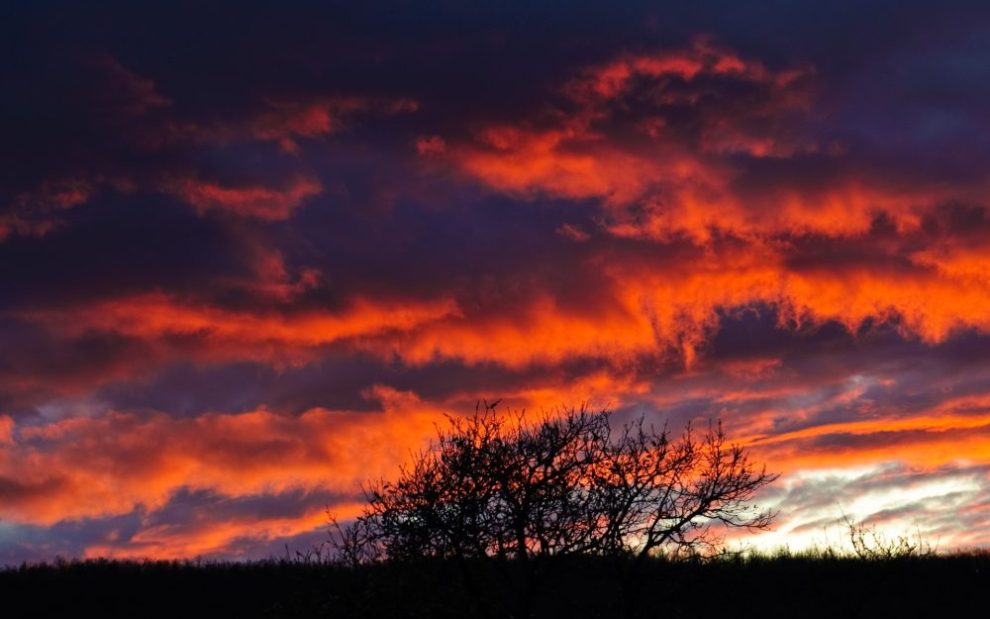In Exodus Chapter 3, which we hear during the first reading for this Sunday, March 20, the story starts with Moses doing his ordinary everyday work. In his case, his job is to tend his father-in-law’s sheep. In our case, our work might be sitting in front of a computer for eight hours—or it might be teaching children or caring for sick people. It could be we work in a factory, we do construction, or we mop floors and do laundry and make meals.
Whatever our daily responsibilities, we don’t usually expect our workday to be interrupted by a vision of God’s presence. We assume that if God is going to visit us in some spectacular way, it’s not likely to be in the middle of our ordinary routine.
That day, out in the desert with the sheep, Moses might easily have been so preoccupied with his own thoughts that he altogether missed the reality of God’s presence. Luckily, the flames rising from a bush get his attention—and when he notices the bush is still green and growing in the midst of the fire, not turned to cinders and ash, not even singed, he says to himself, “I must go over to look at this remarkable sight.”
The Hebrew word that’s translated as “go over” in verse 3 means, literally, “turn aside from a path” or “swerve.” Moses turns away, if only momentarily, from the rut of routine to make room for curiosity, for wonder, for surprise. When he does, he discovers that God is there, speaking from the bush that burns but is not burnt up.
In the Bible, that is often how God turns up—by surprise, somewhere people aren’t expecting to find Divinity, in the middle of a paradox. God still tends to do that. Holy Fire bursts into our humdrum lives when we least expect it.
We don’t often think of surprise and curiosity as being particularly “spiritual” emotions. They may even seem a little childish. Both feelings, however, can bring us outside the narrow limits of our assumptions and preoccupations. They allow us to swerve out of our mental ruts and see something that amazes us. When we open ourselves up to being startled by a larger reality than we thought was possible, we may, like Moses, discover a fresh understanding of God.
When Moses asks God how he should refer to his strange new experience of the Divine, God simply says, “I AM.” This is a hard name to get your head around. It’s not the sort of name that sits quietly on a shelf, requiring no attention, allowing you to forget about it. Basically, God is saying that Divinity is Being itself—and not in some remote, abstract kind of way, but in a first-person, present-tense, relational sort of way.
Kallistos Ware writes, “The entire cosmos is one vast burning bush, permeated by the fire of the divine power and glory.” We could say that each moment of our lives—even the most ordinary moments of a routine workday—are also burning bushes. God is alive and present in each little “RIGHT NOW,” this very breath of time. We only have to open ourselves to holy curiosity and wonder—and turn aside long enough to see what’s already there.
Image: Unsplash/Frank Busch














Add comment